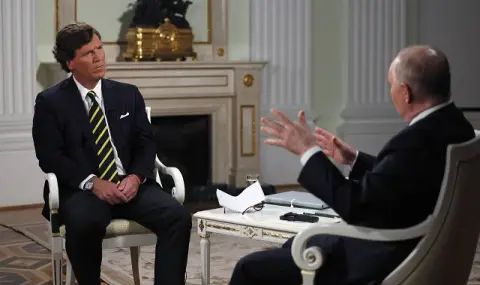Russian President Vladimir Putin continues to champion Russia's economic stability and growth, while high interest rates and efforts to fight inflation show the Kremlin is concerned about economic stability in the long term.
At Russian state bank VTB's investment forum on December 4, Putin said the Russian economy would grow by four percent by the end of 2024, and from January to October 2024. Russia's GDP grew by 4.1 percent.
This is stated in the daily analysis of the Institute for the Study of War (ISW).
Putin is likely trying to position economic stability despite reports that Russia may raise key interest rates to 25% in December 2024, after the Russian central bank already raised the key interest rate to 21% in October 2024.< /p>
The head of the Russian Central Bank, Elvira Nabiulina, said on December 4 that the Central Bank may raise the key interest rate at the upcoming meeting of the Board of Directors of the Central Bank.
On December 4, Putin tacitly acknowledged some economic problems by calling on the Central Bank to curb inflation.
Russian state media RBC reported on December 4, citing Central Bank data, that Russians' cash savings had fallen to a historic low and that cash Russian rubles represented only 15% of Russian citizens' savings.
VTB Banks Deputy Chairman Georgiy Gorshkov estimated that by the end of 2024 cash savings may decrease by "a few" percentage points.
Putin also opined that Russia's economy is growing, boasting of the country's record low unemployment rate of 2.3% and saying unemployment, particularly among Russians aged 25 and under, is decreased significantly.
Putin failed to note that the youth unemployment rate is probably at a record low because many young Russian men are fighting in Ukraine and that Russia is experiencing a significant labor shortage.
The Kremlin continues to use the Time of Heroes program to appoint veterans of the war in Ukraine to senior positions in the Russian government, state administration and large state-owned companies.
On December 4, Armenian Prime Minister Nikol Pashinyan announced that Armenia had practically reached "the point of no return" in its relations with the Russian-led Collective Security Treaty Organization (CSTO).
Pashinyan criticized the CSTO allies for not reacting to Azerbaijan's encroachments on the internationally recognized territory of Armenia in 2021 and 2022. - probably referring to the encroachments in Syunik and Gegharkunik provinces - despite prior assurances that any violation of Armenia's territorial integrity is a "red line" for the CSTO.
Pashinyan said that the CSTO is not trusted because it does not have a clearly defined area of responsibility in Armenia - although Armenia is still formally a member state - and stressed that Armenia's problems with the CSTO are not necessarily related to the conflict in Nagorno-Karabakh.
Pashinyan indicated that Armenia no longer participates in CSTO activities and policy-making.
ISW continues to observe the deterioration of Armenian-Russian bilateral relations and assesses that an official withdrawal of Armenia from the CSTO would serve as another blow to Russian power projection in countries that the Soviet Union once ruled.
